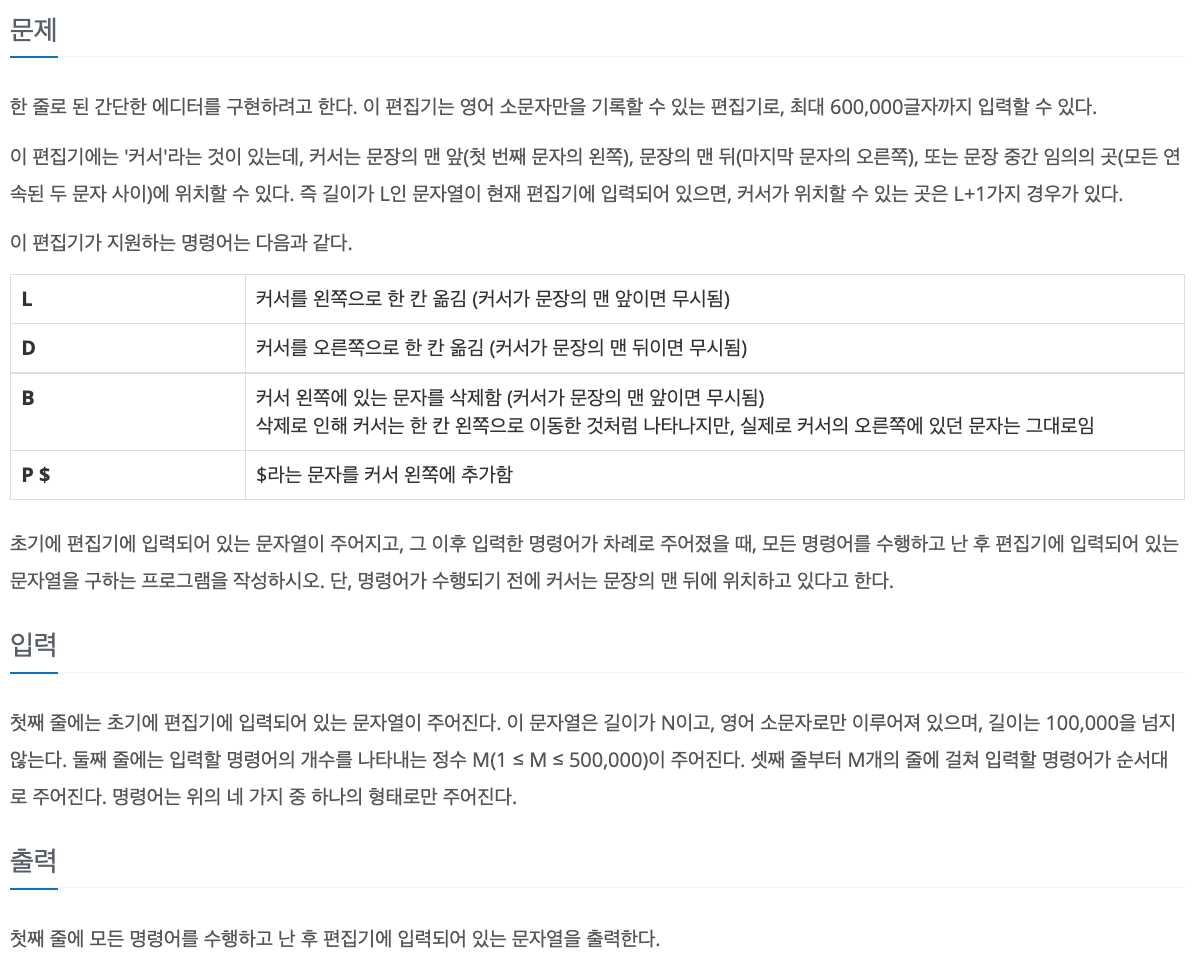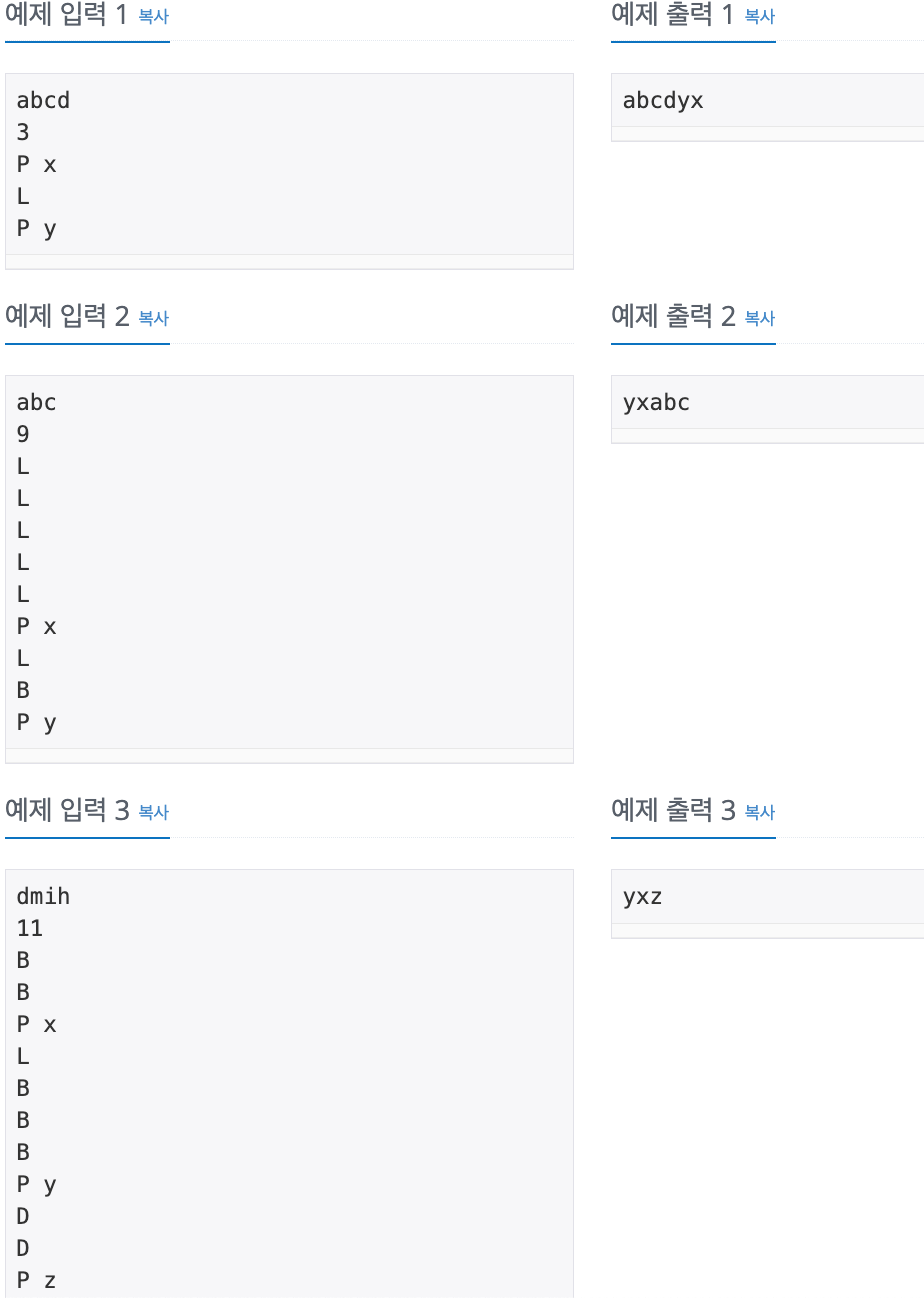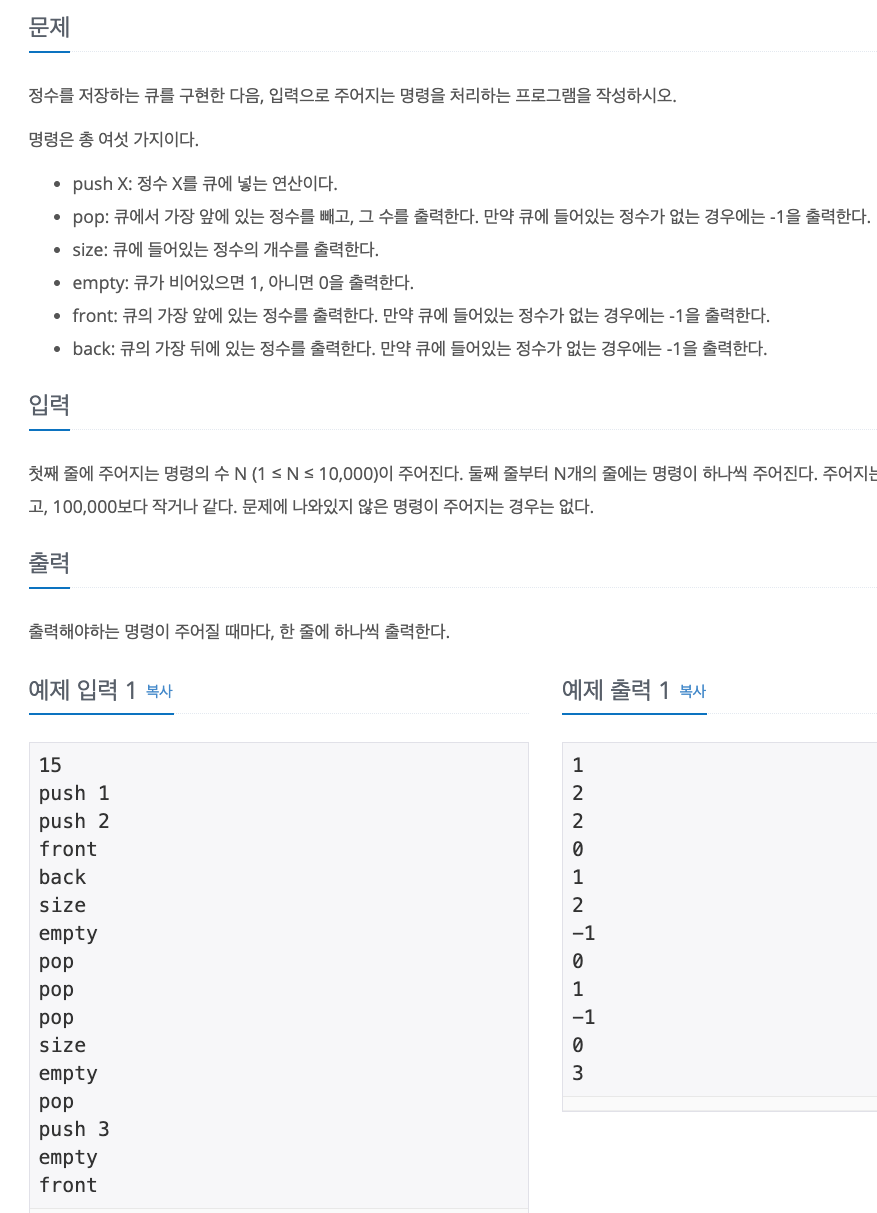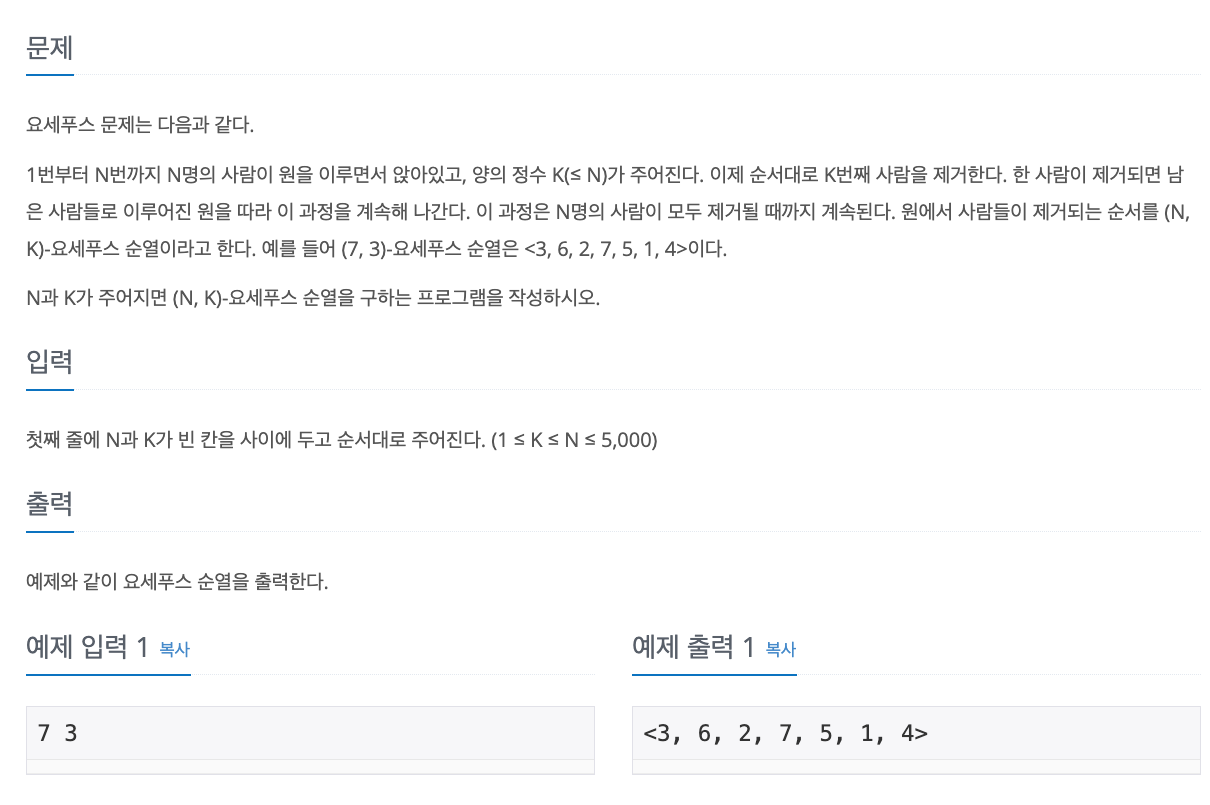No. 1406
1. Problem


2. My Solution
- insert() 함수를 이용해 삽입 -> 시간초과
import sys
def L():
global cursor
if cursor == 0:
return
cursor -= 1
def D():
global cursor, string
if cursor == len(string):
return
cursor += 1
def B():
global cursor
if cursor == 0:
return
del string[cursor-1]
cursor -= 1
def P(word):
global cursor, string
if cursor == len(string):
string.append(word)
cursor += 1
else:
string.insert(cursor,word)
cursor += 1
string = list(sys.stdin.readline().strip())
n = int(sys.stdin.readline().strip())
cursor = len(string)
for _ in range(n):
instruction = sys.stdin.readline().strip().split()
if instruction[0] == 'L':
L()
elif instruction[0] == 'D':
D()
elif instruction[0] == 'B':
B()
else:
P(instruction[1])
print(''.join(string))- insert() 함수대신 문자열을 잘라서 삽입 -> 시간초과
def P(word):
global cursor, string
if cursor == len(string):
string.append(word)
cursor += 1
else:
string = string[0:cursor] + list(word) + string[cursor:]
cursor += 1
3. Others' Solutions
- 스택을 2개 이용해서 구현
- pop() 수행시 원소가 없는 경우 에러가 발생하므로 try-catch문 이용
- right_stack의 문자들은 역순으로 출력
import sys
def L():
global left_stack,right_stack
try:
right_stack.append(left_stack.pop())
except:
return
def D():
global left_stack,right_stack
try:
left_stack.append(right_stack.pop())
except:
return
def B():
global left_stack,right_stack
try:
left_stack.pop()
except:
return
def P(word):
global left_stack,right_stack
left_stack.append(word)
left_stack = list(sys.stdin.readline().strip())
right_stack = []
n = int(sys.stdin.readline().strip())
for _ in range(n):
instruction = sys.stdin.readline().strip().split()
if instruction[0] == 'L':
L()
elif instruction[0] == 'D':
D()
elif instruction[0] == 'B':
B()
else:
P(instruction[1])
print(''.join(map(str,left_stack)),end="")
print(''.join(map(str,right_stack))[::-1])
4. Learned
- 어느 부분의 시간을 줄여야 되는지 판단할 줄 알아야 함
- 스택을 2개 이용해서 문제를 푸는 경우도 있음 참고 유튜브
- 시간이 얼마나 걸리는지 확인해보기 위해 아래 코드를 이용할 수 있음
start = time.time()
...수행부분...
print(time.time() - start)- 파이썬 함수 시간 복잡도 정리 참고 블로그
No. 10845
1. Problem

2. My Solution
- 시간초과를 피하기 위해서 크기 10000인 리스트 먼저 생성한 뒤 대입연산만 수행
import sys
def push(x):
global back_pointer
queue[back_pointer] = x
back_pointer += 1
def pop():
global front_pointer
if empty() == True:
print(-1)
else:
print(queue[front_pointer])
front_pointer += 1
def size():
print(back_pointer - front_pointer)
def front():
if empty() == True:
print(-1)
else:
print(queue[front_pointer])
def back():
if empty() == True:
print(-1)
else:
print(queue[back_pointer-1])
def empty():
if front_pointer == back_pointer:
return True
else:
return False
n = int(sys.stdin.readline().strip())
queue = [0 for _ in range(10001)]
front_pointer = 0
back_pointer = 0
for _ in range(n):
instruction = sys.stdin.readline().strip().split()
if instruction[0] == 'push':
push(instruction[1])
elif instruction[0] == 'pop':
pop()
elif instruction[0] == 'size':
size()
elif instruction[0] == 'front':
front()
elif instruction[0] == 'back':
back()
else:
if empty() == True:
print(1)
else:
print(0)
3. Others' Solutions
- insert() 함수는 시간복잡도 O(N)이지만 10000번만 명령어를 수행하기 때문에 모두 push 라고해도 100000000 -> 1초
import sys
N = int(sys.stdin.readline())
queue = []
for i in range(N):
cmd = sys.stdin.readline().split()
if cmd[0] == "push":
queue.insert(0, cmd[1])
##print(queue)
elif cmd[0] == "pop":
if len(queue) != 0: print(queue.pop())
else: print(-1)
elif cmd[0] == "size":
print(len(queue))
elif cmd[0] == "empty":
if len(queue) == 0: print(1)
else : print(0)
elif cmd[0] == "front":
if len(queue) == 0: print(-1)
else: print(queue[len(queue) -1])
elif cmd[0] == "back":
if len(queue) == 0: print(-1)
else: print(queue[0])
4. Learned
- 수행시간이 얼마나 걸릴 지 예상하여 알고리즘을 구현하자
No. 10845
1. Problem

2. My Solution
- index를 제거된 후의 요소의 개수로 % 연산함
- index가 요소의 개수를 넘어가면 % 연산자로 다시 앞으로 index를 넘김
import sys
n,k = map(int,sys.stdin.readline().strip().split())
circle = [i for i in range(1,n+1)]
index = k-1
result = []
while(True):
result.append(circle[index % len(circle)])
del circle[index % len(circle)]
index += k-1
if len(circle) == 0:
break
index = index % len(circle)
print("<",end="")
print(', '.join(map(str,result)),end="")
print(">")
3. Others' Solutions
- 맨 앞의 요소를 pop -> push 하여 다시 뒤로 삽입함 (참고 유튜브)
4. Learned
- 스택의 pop, push 연산자를 이용해서 구현할 수 있는 알고리즘을 생각해보자
- 인데스가 0부터 시작해야 % 연산자로 다시 앞으로 돌아갈 수 있음